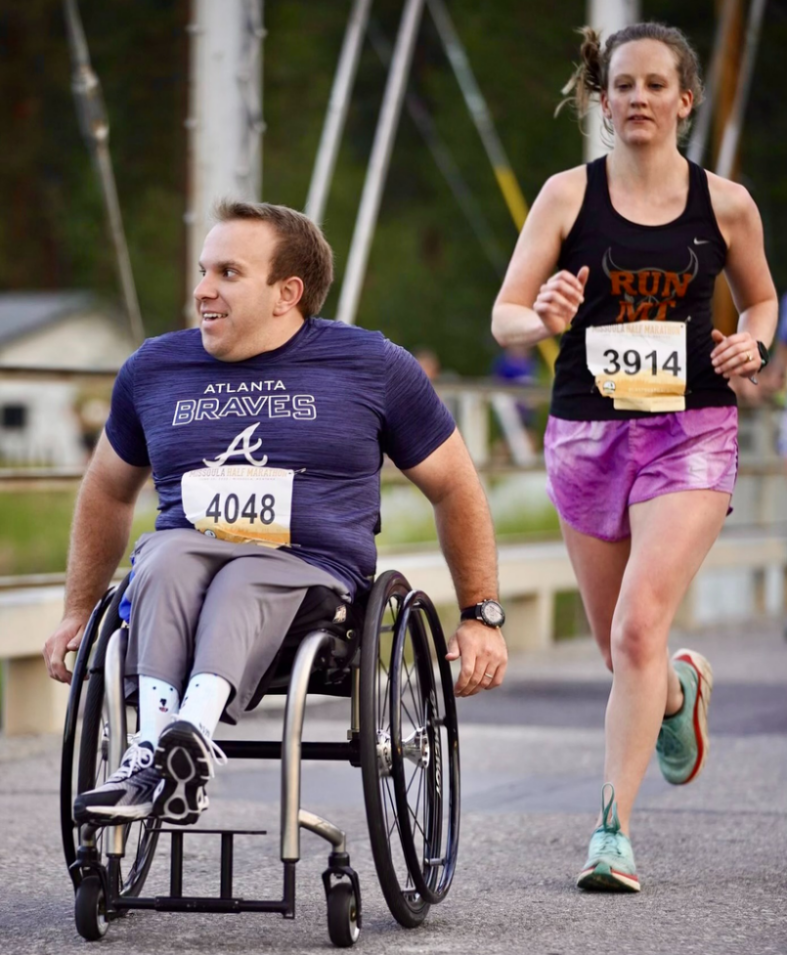I love using a good sports metaphor in the therapy room. Whether you’re an athlete or not, there are countless ways we can apply concepts from sports to the rest of our lives. I’ve selected a few of my favorite lessons to share below. Read on to learn three things sports teach us about life and use the reflection questions below to apply the concepts to your own experience.
Every Season has a Purpose
Endurance athletes like marathoners and triathletes train using a concept called periodization. According to Triathlete, periodization “involves systematically breaking a longer time period, usually a season or year (called a macrocycle), down into shorter periods that focus on a certain training element (volume, intensity, etc) in order to build fitness, and eventually maximize performance.”
Just like each period of a training plan and each individual workout has a specific purpose, each period of your life has a purpose too. Do you hate winter? Find a purpose for it. Maybe it’s to work overtime so you can save up for a summer vacation. Or it’s a chance to get caught up on all those books you’ve been wanting to read.
While these periods can align with the seasons of the year, they don’t have to. Sometimes a period of our life is several months or even years long. Sometimes we feel stuck in a season we don’t want to be in. Regardless, finding a reason for the season can help you feel more motivated, patient, and fulfilled.
Recovery is Essential for Peak Performance
A key part of every training plan is recovery. Athletes typically build recovery into their weekly training schedule (short-term recovery) and into their larger training plan (long-term recovery). According to Dr. Karin VanBaak of the University of Colorado, “Where we see people get into trouble is when they’re going from one big training block to another big training block to yet another big training block without taking several weeks off in between.”
Sound familiar? Sometimes we fall into this trap with other pursuits such as work, school, or hobbies. We jump from one project to another project to another project without taking time to rest. If Olympic gymnast Simone Biles can take a two-year break from competition, you too can take time off to restore and rejuvenate.
Notice which recovery activities lead you to feel the most refreshed. Taking a bath? Journaling? Wood working? Try building these into your weekly routine to help you avoid getting an overuse injury (literally or figuratively). Feeling burned out? Give yourself permission to take extended breaks from your pursuits.
You Can Show Up Even When Conditions Aren’t Ideal
Participate in a sport long enough and you’ll discover that conditions aren’t always ideal. It starts blizzarding during your football game. You encounter a nasty headwind during your bike ride. Your group exercise class is packed and there’s barely enough room to do lunges without stepping on the person in front of you.
Athlete or not, we all end up in situations where we have to perform a task and the conditions aren’t ideal. We still have to show up to work even if we didn’t sleep well the night before. We still have to lead the meeting even if we didn’t get quite enough time to prepare. While there are times when it’s safer to skip the windy bike ride or take a sick day, pushing through some discomfort can help us build our frustration tolerance, a key component of mental health.
Ready to think like an athlete? Use these reflection questions to apply the concepts above to your own life.
- How can you build periods or seasons into your life? What’s the purpose of the period or season you’re in right now?
- How do you recover and recharge? How can you build both small amounts of recovery into your weekly routine (short-term recovery) and extended recovery periods (long-term recovery) after completing a major goal or task?
- Take a moment to reflect – How’s your frustration tolerance? If you think you’d benefit from developing it further, what are some ways you can practice hanging in there when the going gets tough?
Interested in learning more about the connection between sports and mental health? Check out my previous blog post, Three Ways Participating in Sports Help Mental Health.
This blog post isn’t intended as professional counseling or clinical advice. If you’re in need of support, please consider speaking to a professional to be evaluated. Need some guidance implementing the strategies above? Schedule a free phone consultation to see if I can help you reach your goals.

